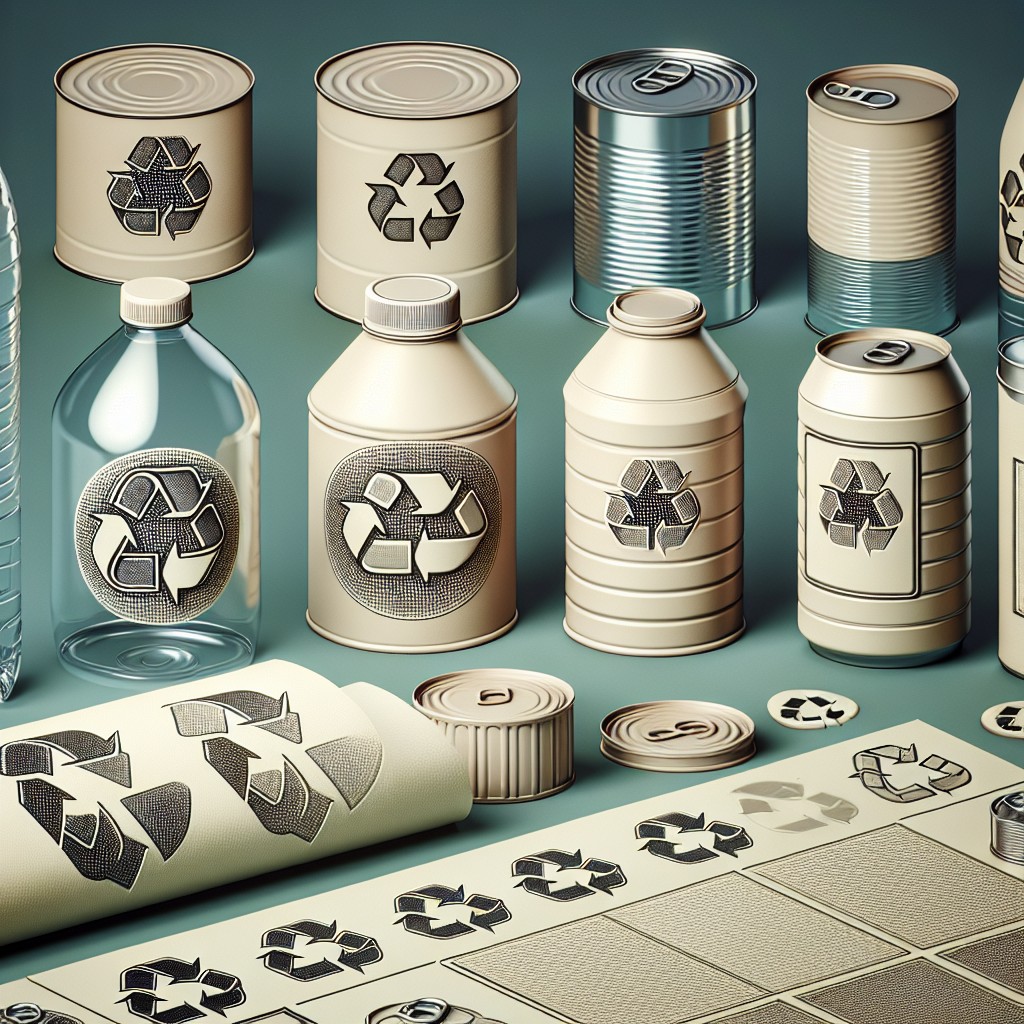Last updated on
While certain types of plastic hangers can be recycled, many curbside recycling programs do not accept them due to their shape and the types of plastic they are made from.
Key takeaways:
- Plastic hangers often cannot be recycled due to their shape and composition.
- Plastic hangers contribute to environmental pollution and take hundreds of years to break down.
- Some specialized recycling programs and stores may accept plastic hangers for recycling.
- Plastic hangers are difficult to recycle due to mixed materials and their shape.
- Sustainable alternatives to plastic hangers include bamboo, recycled paper, stainless steel, and FSC-certified wood.
The Environmental Impact of Plastic Hangers
The production and disposal of plastic hangers contribute significantly to environmental pollution. They are often made from non-renewable resources such as petroleum products, which require energy-intensive processes to extract and transform. This contributes to carbon emissions and, ultimately, climate change.
Once their useful life is over, the majority of these hangers end up in landfills where they take hundreds of years to break down, gradually leaching chemicals into the soil and groundwater. During this degradation process, they can also break down into microplastics that often make their way into the ocean, posing a threat to marine life.
Additionally, these hangers are seldom made of a single type of plastic, incorporating metal hooks or clips that complicate recycling. As a result, they are less likely to be accepted by recycling programs, increasing the likelihood they will contribute to plastic pollution.
Considering the lifecycle of plastic hangers from cradle to grave, the environmental impact is far-reaching — from resource extraction and energy consumption to waste management challenges and ecological damage.
Can You Recycle Plastic Hangers?
Despite their ubiquitous presence in closets worldwide, plastic hangers present a conundrum when it comes to recycling. The composition of plastic hangers often includes a mixture of materials such as different types of plastics, metals for hooks, or even paper labels. This diversity makes them a challenge for single-stream recycling systems, which require materials to be sorted into pure streams for effective processing.
Moreover, their shape poses a practical problem. Hangers can jam machinery used at recycling facilities due to their long, awkward forms, leading to costly repairs and downtime. Consequently, most curbside recycling programs exclude plastic hangers from their accepted items list.
However, it’s not all doom and gloom for these wardrobe accessories. Some specialized recycling programs and facilities have the capacity to handle mixed plastics and can process hangers. It’s essential to do research and reach out to local waste management authorities or dedicated recycling centers to confirm if they have provisions for these items. Often, certain stores or brands take back hangers for reuse or recycling as part of their sustainability initiatives. By being proactive and seeking out appropriate disposal avenues, individuals can contribute to a circular economy and divert plastic hangers from ending up in landfills.
Why Are Plastic Hangers So Hard To Recycle?
The difficulty in recycling plastic hangers stems from several factors. First, they are often made from a mix of plastic types, which complicates the sorting process at recycling facilities. Pure streams of one type of plastic are necessary for effective recycling, and the mixed materials in hangers can contaminate these streams, disrupting the recycling process.
Moreover, plastic hangers commonly feature metal hooks, and this combination of materials requires additional separation steps. Most recycling plants aren’t equipped with the necessary technology to dissect the hangers into recyclable components efficiently.
Another challenge is the shape and size of plastic hangers. They can easily jam the machinery used in recycling facilities, which are typically designed to handle bottles, containers, and other uniformly-shaped plastics. This can lead to costly shutdowns and repairs, discouraging the inclusion of hangers in standard curbside recycling programs.
Lastly, the lack of a universal recycling symbol or number on plastic hangers means they often must be sorted manually, a labor-intensive process that further reduces the incentive for recycling centers to accept them. Therefore, these logistical and economic hurdles significantly contribute to the hurdles faced in recycling plastic hangers effectively.
Can You Put Plastic Coat Hangers In The Recycling Bin?
Placed in the typical household recycling bin, plastic coat hangers create problems due to their shape and the diversity of plastics they’re made from. Most curbside programs are not equipped to handle them, as the machinery can’t sort them properly and they can damage the equipment.
To illuminate further:
- Sorting Issues: Hangers often do not display the recycling symbols or numbers, making it difficult for workers to sort them by plastic type.
- Mixed Materials: Many contain metal hooks or other non-plastic elements, complicating recycling as these materials need to be separated before the process.
- Local Guidelines: Always check your municipality’s recycling rules, as some have special drop-off locations or take-back programs specifically for plastics not supported in curbside pickup.
It’s essential to verify with local waste management authorities rather than assuming these items can be recycled with other household plastics.
Do Retail Stores Accept Plastic Coat Hangers For Recycling?
Some retail stores have taken the initiative to accept plastic hangers for recycling as part of their sustainability programs. This is because retailers acknowledge the challenge consumers face when trying to recycle these items through traditional municipal recycling programs. Here’s what you should know if you’re considering returning your hangers to a store:
- Participation Varies: Before bringing hangers back to a store, it’s crucial to check with your local retailers. Not all have a take-back program, as policies vary by location and company.
- Condition Matters: Stores that do recycle hangers typically ask that they be returned in good condition. Broken or heavily damaged hangers may not be accepted, as they can complicate the recycling process.
- Limited Types: Retailers may only accept certain types of hangers, such as those originally purchased from their store or specific materials that align with their recycling capabilities.
- Collaborative Efforts: Some stores collaborate with recycling companies specialized in handling complex plastic items like hangers, ensuring they are properly processed and repurposed.
If you’re looking to return hangers to a store for recycling, it’s recommended to reach out to customer service or look for information on the store’s website regarding their recycling policies. By doing so, you’re contributing to a circular economy and helping reduce plastic waste.
How To Dispose of Plastic Hangers
Disposing of plastic hangers responsibly requires a bit of resourcefulness given their complex recyclability. To effectively discard them:
- Check with local recycling centers to inquire if they accept plastic hangers. Some facilities may process them if you remove any metal parts.
- Inquire at dry cleaners or thrift stores. Many will gladly take sturdy hangers off your hands for reuse.
- Consider donation centers. Organizations such as shelters or non-profits might need hangers for storing clothing.
- Reach out to community groups on social media. Often, neighbors or local businesses can repurpose items like these.
- Explore upcycling at home. Hangers can be transformed into a variety of useful tools and crafts with a little creativity.
Remember, always prioritize reuse and repurposing over disposal to minimize environmental impact.
Sustainable Alternatives to Plastic Hangers
Transitioning to sustainable hanger options not only mitigates waste but can also introduce an eco-friendly aesthetic to your closet.
Bamboo hangers stand out as a popular choice, renowned for their robustness and the rapid growth rate of their source material which ensures a smaller carbon footprint. They are biodegradable and compostable at the end of their lifecycle, unlike their plastic counterparts.
Another noteworthy option is hangers made from recycled paper. These are surprisingly sturdy and can often hold the weight of heavier garments, such as coats or suits. They too can be recycled after their usefulness has been exhausted.
Stainless steel hangers provide a sleek, modern look and unmatched durability. While they may have a higher initial cost, their longevity compensates over time, and they can be melted down and fully recycled when no longer needed.
FSC-certified wood hangers are a choice for those committed to sustainability. The Forest Stewardship Council certification ensures that the wood has been sourced following principles and criteria that promote responsible forest management.
Finally, there’s an innovative approach that involves hangers made from upcycled materials, such as ocean plastic or discarded fabrics. These hangers divert waste from landfills and oceans while serving as a conversation starter about the importance of upcycling.
Embracing these alternatives contributes to a circular economy, where products are kept in use for as long as possible and regenerated at the end of their service life.
Are Black Coat Hangers Recyclable?
Despite their ubiquitous presence in closets and stores, black hangers present unique recycling challenges. The dark pigment in these hangers is achieved through the use of carbon black, a material that hinders the sorting process at recycling facilities. Optical sorters, which rely on light reflection to identify and separate materials, cannot detect the carbon black pigment, leading to potential contamination of recyclables.
Consequently, most curbside programs won’t accept them. If you’re determined to avoid the landfill, your best bet is to look for a local recycling facility that has the capability to process black plastics. Some garment stores or dry cleaners may also take back hangers for reuse. When in doubt, it is always prudent to call ahead and confirm whether black hangers are accepted for recycling or swap your hangers for a more recyclable option.
What Are The Benefits Of Recycling Plastic Hangers?
Recycling plastic hangers contributes significantly to sustainability and environmental protection. Firstly, it reduces the demand for virgin materials, conserving resources and lowering the carbon footprint associated with production. Furthermore, it diminishes the volume of waste that ends up in landfills, thereby reducing soil and water pollution from plastic degradation.
Recycling these items also conserves energy, as manufacturing products from recycled materials is often less energy-intensive than producing them from scratch. Additionally, harnessing the value of recyclable materials supports the recycling industry, creating jobs, and fostering innovation in waste management technologies.
By participating in the recycling of plastic hangers, everyone can take an active role in building a more circular economy where materials are kept in use for as long as possible.
Creative Ways To Reuse & Repurpose Plastic Coat Hangers
Before surrendering to the idea that your plastic hangers belong in the trash, consider the myriad of creative pathways you can take to repurpose them, thus extending their life cycle and reducing environmental impact.
1. Organization Tools: Clip those clips! The detachable clips of pants hangers are perfect for sealing opened food packages or organizing documents.
2. Craft Projects: Unleash your creativity by transforming hangers into frames for your artwork or weaving them into unique wall decorations.
3. Gardening Aids: Outdoor spaces can benefit from hangers as well. Bend and cut them to create plant trellises or markers for your vegetable garden.
4. Jewelry Holders: Say goodbye to tangled necklaces by converting a hanger into a handy jewelry organizer.
5. Flip-Flop Hangers: Create designated flip-flop hangers by cutting notches into the bottom bar to hold the straps, making storage a breeze.
6. Tool Rack: In the workshop, a plastic hanger can be modified into a tool rack, keeping wrenches and hammers within easy reach.
7. Ribbon or Tape Dispenser: For craft enthusiasts, hangers can be repurposed into convenient dispensers for ribbons or tapes.
With a bit of imagination, plastic hangers gain a second wind, proving that being environmentally conscious can also spark ingenuity.
FAQ
Can I put plastic hangers in the recycling bin?
While plastic hangers cannot typically be recycled in standard curbside recycling bins, they can often be dropped off at local Recycling Centres, donated to charity shops, or returned to some retailers for recycling.
What do I do with plastic hangers?
Discard broken plastic hangers, and take functional ones to major retailers such as Target, Kohl’s or Walmart, which have recycling programs to reuse or recycle single-use hangers under their rigid plastics initiative.
Where can I donate plastic hangers near me?
Local schools, daycares, shelters, nursing homes, and hospitals are often good places to donate plastic hangers.
Does Target recycle plastic hangers?
Yes, Target provides specific recycling bins for plastic hangers, typically located near the clothing or housewares sections.
Are there eco-friendly alternatives to plastic hangers?
Yes, there are eco-friendly alternatives to plastic hangers, such as those made from bamboo, cardboard, and even recycled materials.
How does the recycling process of plastic hangers work?
The recycling process of plastic hangers involves collection, sorting, cleaning, melting and remolding into new products.
Are there any creative DIY projects for repurposing old plastic hangers?
Yes, old plastic hangers can be creatively repurposed through DIY projects such as hanging picture frames, making jewelry organizers, arranging scarves, crafting play fort frameworks, and even creating a unique wall mural.
Related reading:
Table of Contents


